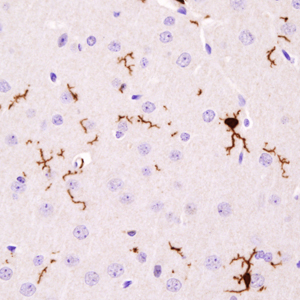With support from a new $3.3 million American Recovery and Reinvestment Act grant from the National Institute of Neurological Disorders and Stroke, researchers at Washington University School of Medicine in St. Louis are hunting for normal cells that help brain tumors form and grow.
“Cancers are like predators in the ecosystem of the brain, and we usually try to wipe these predators out with various kinds of bombs,” says principal investigator David H. Gutmann, MD, PhD, the Donald O. Schnuck Family Professor of Neurology. “That eliminates the current crop of predators, but because the non-cancerous cells that helped the tumor get started in the first place are still there, the local ecology favors the cancer’s return.”
By quantifying the contributions of non-cancerous cells to this brain ecology, Gutmann and his colleagues hope to find ways to make it more hostile to cancer.

Gutmann, director of the Washington University Neurofibromatosis Center, has found evidence in multiple studies that brain cells known as microglia help drive tumor growth in patients with neurofibromatosis 1, a common inherited tumor syndrome.
Microglia are support cells in the central nervous system that defend against invaders. Although microglia comprise a significant portion of the central nervous system’s support cells, scientists do not have a way to quickly identify them.
Gutmann and his colleagues plan to isolate microglia from tumors in human pediatric patients and in a mouse model of NF1 brain tumors. In collaboration with Elaine Mardis, PhD, co-director of the Washington University Genome Center, they will perform complete genome sequencing of the microglia to identify genes and proteins with the potential to drive brain tumor growth.
Once they pinpoint the critical proteins made by microglia, David Piwnica-Worms, MD, PhD, professor of radiology and of developmental biology, and Joshua Rubin, MD, PhD, associate professor of pediatrics and of neurology, will determine whether these proteins actually stimulate the growth of brain tumors in cell culture and in genetically-engineered mice.
Finally, Gutmann and Jeff Leonard, MD, associate professor of pediatrics and of neurological surgery, will work to create monoclonal antibodies that can recognize proteins on the surface of microglia, allowing scientists to better identify these cells and distinguish subgroups of patients most likely to respond to specific therapies.
“Based on these studies, we will have the first complete picture of these critical brain support cells, which we hope will allow us to develop complementary treatment strategies that target both the cancer and non-cancerous cells in brain tumors,” Gutmann says.
Washington University School of Medicine’s 2,100 employed and volunteer faculty physicians also are the medical staff of Barnes-Jewish and St. Louis Children’s hospitals. The School of Medicine is one of the leading medical research, teaching and patient care institutions in the nation, currently ranked fourth in the nation by U.S. News & World Report. Through its affiliations with Barnes-Jewish and St. Louis Children’s hospitals, the School of Medicine is linked to BJC HealthCare.
Comments and respectful dialogue are encouraged, but content will be moderated. Please, no personal attacks, obscenity or profanity, selling of commercial products, or endorsements of political candidates or positions. We reserve the right to remove any inappropriate comments. We also cannot address individual medical concerns or provide medical advice in this forum.